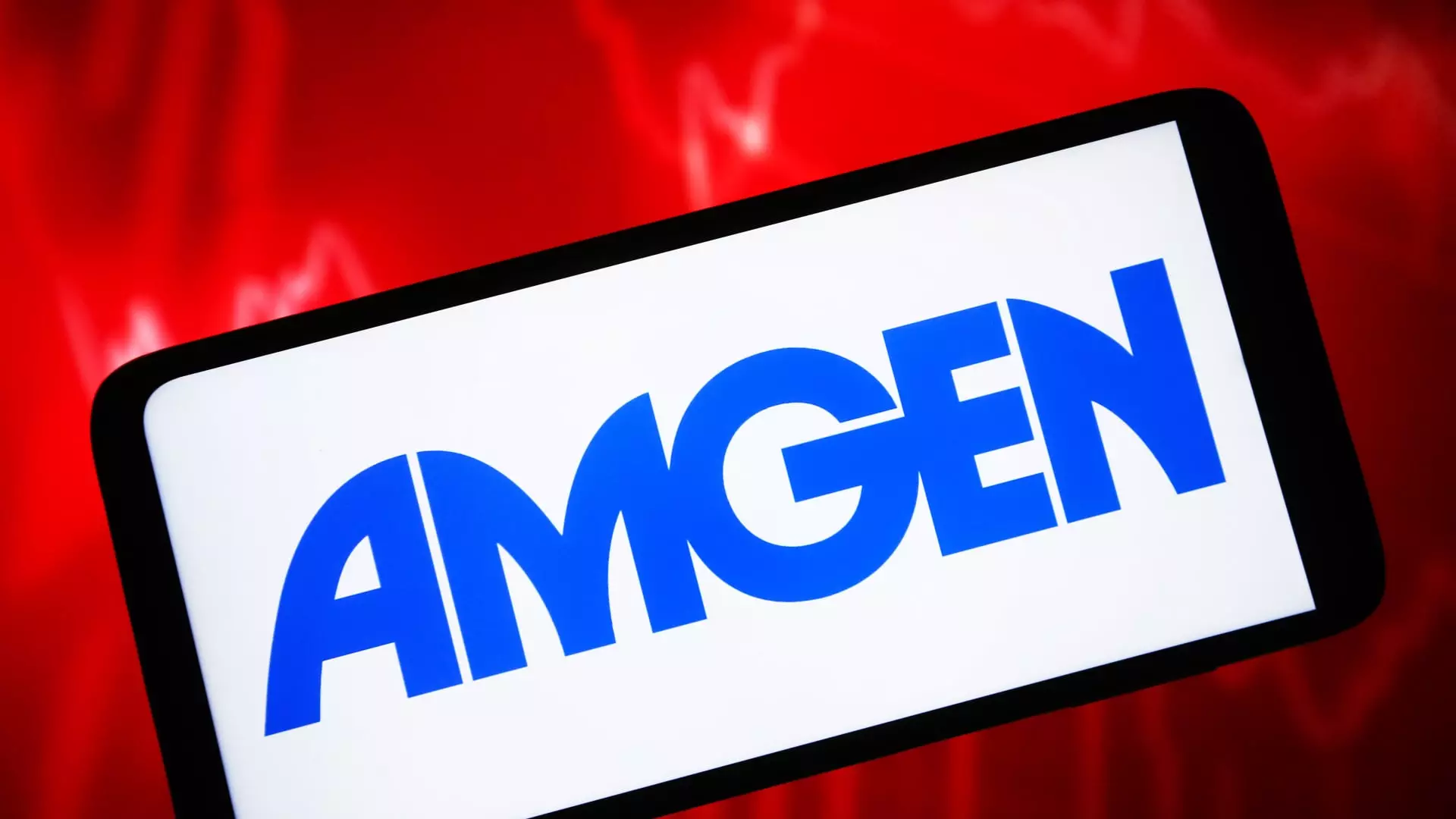Amgen’s stock surged by more than 12% on Friday following the drugmaker’s announcement of positive initial data on its experimental weight loss injection, MariTide. This news sparked concerns among investors about new competition in the rapidly growing weight loss drug industry. The shares of current obesity players, Novo Nordisk and Eli Lilly, took a hit with Eli Lilly’s shares dropping nearly 3% and Novo Nordisk’s U.S.-traded shares falling over 1%. Novo Nordisk had already been under pressure after its blockbuster weight loss injection, Wegovy, missed analyst estimates for the first quarter due to lower pricing.
During a first-quarter earnings call, Amgen’s CEO Bob Bradway expressed his enthusiasm for the early results from a mid-stage study on MariTide, stating that he was “very encouraged.” Investors are closely monitoring this drug and the rest of Amgen’s weight loss drug pipeline as it competes with other drugmakers in the market. Amgen’s Chief Scientific Officer, Jay Bradner, mentioned that patient dropout has not been an issue, and the company plans to release initial data from the study in late 2024. The company is also gearing up for late-stage studies in patients with obesity, obesity-related conditions, and diabetes.
Bradway highlighted the unique selling points of MariTide, particularly focusing on its convenience factor. The injection can be administered using a hand-held autoinjector once a month or even less frequently, offering a significant convenience advantage over the weekly injections currently on the market. Analysts have also shown confidence in the potential of MariTide to differentiate itself from other therapies, especially in terms of treatment intervals.
Following the positive news from Amgen, William Blair analyst Matt Phipps upgraded the rating on Amgen shares to “outperform.” The firm expressed growing confidence in MariTide’s potential and its ability to stand out in a competitive market. While Amgen decided to scrap its experimental oral obesity drug, the focus remained on the promising updates regarding MariTide. This shift in focus was reflected in the market response and the analyst notes from firms like William Blair.
Amgen’s Bradway revealed that the company had started expanding manufacturing for MariTide, signaling its preparation to meet the demand for the drug. This move addresses a major issue that Novo Nordisk and Eli Lilly have been grappling with over the past year and a half – securing an adequate drug supply. On the other hand, investors were pleased with Eli Lilly’s assurance that it could overcome ongoing supply constraints for its popular drugs. The company raised its full-year guidance, citing optimism around increased production of Zepbound, Mounjaro, and other similar drugs.
While Novo Nordisk experienced a nearly doubled sales growth for Wegovy in the first quarter, it fell short of analyst expectations. This suggested that the company is struggling to meet the rising demand for the treatment. Novo Nordisk also cited fierce competition from Eli Lilly’s Zepbound, impacting the pricing dynamics for Wegovy in the U.S. The Chief Financial Officer noted that the “net pricing” for both Wegovy and Ozempic would be lower throughout the year due to increasing volume and competition.
Overall, Amgen’s positive data on its weight loss injection MariTide resulted in a surge in its stock value and raised investor concerns about competition in the weight loss drug market. The company’s strategic maneuvers, including manufacturing expansions and focus on differentiation, have garnered positive analyst reviews and positioned Amgen as a key player to watch in this rapidly growing industry.


Leave a Reply